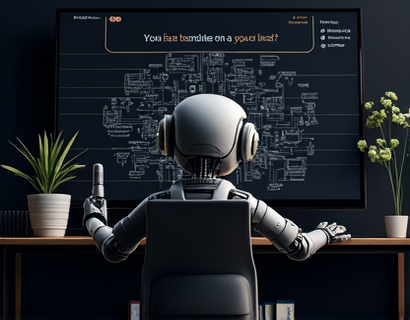Maximize Your Smart Home Experience: Discover the Latest Innovative Appliances for Modern Living
In the rapidly evolving landscape of home technology, the integration of smart appliances has become a pivotal aspect of modern living. These devices are not just about convenience; they represent a significant step towards a more efficient, sustainable, and connected lifestyle. This article delves into the latest innovations in smart home appliances, exploring how they can transform your living space and daily routines. From smart refrigerators to advanced heating systems, we will uncover the benefits and features of these cutting-edge technologies, designed to blend seamlessly into your modern life.
Understanding Smart Home Appliances
Smart home appliances are devices that can be controlled, monitored, and optimized through a network, typically using Wi-Fi or Bluetooth connectivity. These appliances range from common household items like refrigerators and washing machines to less obvious ones like smart thermostats and intelligent lighting systems. The core idea behind smart appliances is to enhance the functionality and efficiency of traditional devices, making them more user-friendly and adaptable to your lifestyle.
Key Features of Smart Appliances
- Remote Control: Manage your appliances from anywhere using a smartphone or tablet.
- Energy Efficiency: Many smart appliances are designed to consume less energy, reducing your utility bills and environmental impact.
- Automation: Set schedules and automate tasks to simplify your daily routines.
- Integration: Work seamlessly with other smart devices in your home, creating a cohesive ecosystem.
- Data Insights: Gain valuable insights into usage patterns and optimize performance.
Smart Refrigerators: The Heart of Your Smart Kitchen
Smart refrigerators are at the forefront of kitchen technology, offering a range of features that go beyond temperature control. These appliances often include high-resolution touchscreens, allowing you to stream music, check emails, and even order groceries online. Advanced models come equipped with built-in cameras, enabling you to check the contents of your fridge from your smartphone, ensuring you never run out of essential items.
One of the most significant benefits of smart refrigerators is their ability to manage food storage more efficiently. Some models use sensors to track expiration dates and suggest recipes based on the ingredients you have on hand. This not only helps reduce food waste but also encourages healthier eating habits. Additionally, smart refrigerators can integrate with your calendar, reminding you of upcoming events and suggesting meal plans accordingly.
Smart Washing Machines: A Game Changer for Laundry
Laundry is a routine task that can be both time-consuming and tedious. Smart washing machines are designed to simplify this process, offering advanced features that make cleaning more efficient and convenient. These appliances can be controlled via a smartphone app, allowing you to start, stop, or monitor cycles remotely. Some models even offer predictive maintenance alerts, notifying you when a part needs replacing, thus preventing unexpected breakdowns.
Energy and water consumption are also optimized in smart washing machines. They use sensors to adjust the amount of water and detergent needed based on the load size and type, leading to significant savings over time. Furthermore, many smart washers come with eco-friendly settings, using less energy and water while still delivering excellent cleaning results.
Smart Thermostats: Smartening Up Your Home’s Climate Control
Heating and cooling account for a substantial portion of household energy usage. Smart thermostats address this by providing precise control over your home’s temperature, adapting to your schedule and preferences. These devices learn your habits over time, automatically adjusting the temperature to save energy when you’re away or sleeping.
One of the most appealing features of smart thermostats is their compatibility with voice assistants like Amazon Alexa or Google Assistant. This allows for hands-free control, making it easy to adjust the temperature without getting up from your couch. Additionally, many smart thermostats provide detailed energy usage reports, helping you identify areas where you can further reduce consumption and lower your bills.
Smart Lighting: Illuminating Your Life in New Ways
Smart lighting systems offer unparalleled flexibility and control over your home’s lighting. These systems can be programmed to adjust brightness and color based on the time of day or your specific activities. For instance, you can set your living room lights to a warm, cozy glow in the evening or a bright, energizing white during the morning.
Energy efficiency is another significant advantage of smart lighting. LED bulbs, which are commonly used in smart systems, consume far less power than traditional incandescent bulbs and have a much longer lifespan. Some smart lighting systems also use motion sensors to turn lights on and off automatically, ensuring you’re not wasting energy when rooms are unoccupied.
Smart Security Systems: Protecting Your Home with Advanced Technology
Home security has evolved significantly with the advent of smart technology. Modern security systems integrate various components such as cameras, door sensors, and motion detectors into a single, easy-to-manage platform. These systems can be monitored and controlled remotely through a smartphone app, providing peace of mind whether you’re at home or away.
One of the most innovative features of smart security systems is their ability to integrate with other smart devices. For example, if a motion sensor detects movement, it can trigger your smart lights to turn on, making it appear as though someone is home. This not only deters potential intruders but also adds an extra layer of security.
Smart Fire Safety: Ensuring Your Home’s Safety
Fire safety is a critical aspect of home security, and smart technology has made significant strides in this area. Smart smoke detectors can send alerts to your smartphone if they detect smoke or heat, even when you’re not at home. Some advanced models can also integrate with your smart home system, automatically locking doors and notifying emergency services if a fire is detected.
Additionally, smart fire safety systems can be part of a comprehensive home automation setup, working in tandem with other devices to create a safer living environment. For instance, if a smoke detector is triggered, the system can turn off gas lines, shut down electrical circuits, and open windows to facilitate evacuation.
Smart Appliances for a Sustainable Home
The environmental impact of home appliances is a growing concern, and smart technology offers solutions to make your home more sustainable. Energy-efficient smart appliances consume less power and often come with eco-friendly settings that optimize usage. For example, smart HVAC systems can reduce energy consumption by adjusting temperatures based on occupancy and weather forecasts.
Water-saving smart faucets and showerheads are another innovative solution. These devices use sensors to detect usage patterns and adjust water flow accordingly, significantly reducing waste. Some models even filter water, ensuring clean and safe drinking water while minimizing the need for bottled water.
Smart Gardening: Bringing Nature Indoors
For those with a green thumb, smart gardening tools can transform your outdoor space into a thriving oasis. Smart irrigation systems use weather data and soil moisture sensors to water your plants only when necessary, conserving water and ensuring your garden remains healthy. These systems can be controlled remotely, allowing you to adjust settings from anywhere.
Indoor gardening has also benefited from smart technology. Smart plant monitors track light, temperature, and humidity levels, providing real-time data to help you create the perfect environment for your plants. Some advanced systems even automate watering and nutrient delivery, making indoor gardening more accessible and enjoyable.
The Future of Smart Home Appliances
The future of smart home appliances is exciting, with ongoing advancements promising even more innovative features and integrations. One area of focus is artificial intelligence (AI), which can further enhance the functionality of smart devices. AI-powered appliances can learn from your habits and preferences, making predictions and adjustments to optimize your daily routines even more effectively.
Another promising development is the integration of voice control and natural language processing. As voice assistants become more sophisticated, interacting with your smart home will become more intuitive and seamless. Imagine being able to control multiple devices with simple voice commands, creating a truly hands-free living experience.
Challenges and Considerations
While the benefits of smart appliances are undeniable, there are also challenges and considerations to keep in mind. One of the primary concerns is privacy and security. Smart devices collect data, and ensuring this data is protected is crucial. It’s important to choose reputable brands that prioritize security and provide transparent privacy policies.
Another consideration is compatibility. The smart home ecosystem can be complex, with devices from different manufacturers needing to work together smoothly. Opting for devices that are part of a cohesive ecosystem or that support open standards can help mitigate compatibility issues.
Conclusion
Smart home appliances offer a wealth of benefits, from increased convenience and efficiency to enhanced sustainability and safety. By integrating these innovative devices into your home, you can create a living space that adapts to your lifestyle, making daily routines easier and more enjoyable. As technology continues to advance, the possibilities for smart home appliances will only grow, promising a future where home and technology are perfectly aligned.










































